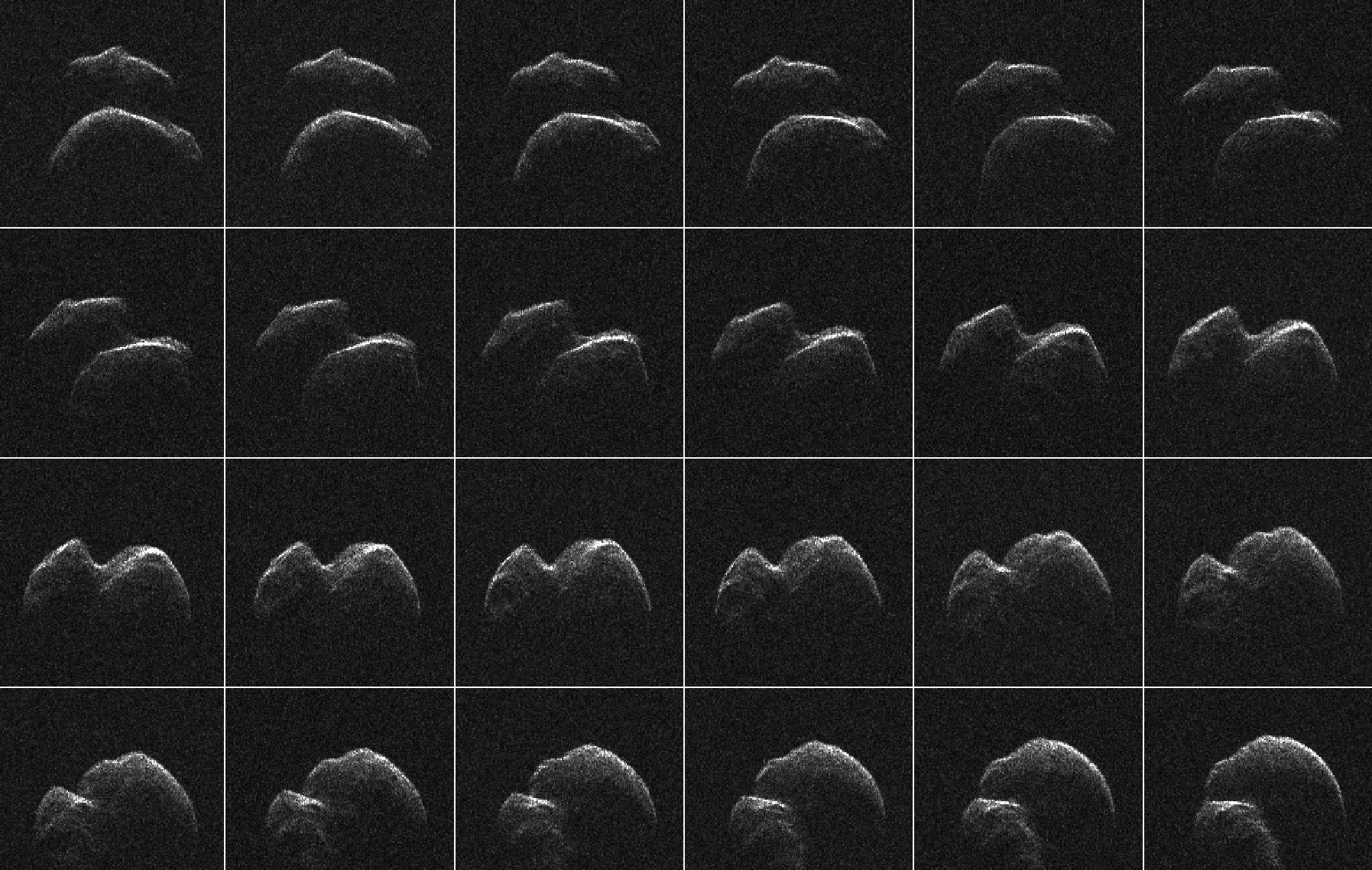Asteroid the size of Gibraltar to pass Earth
2014 J025 is nearly a mile wide and is hurtling through space at 73mph

A free daily email with the biggest news stories of the day – and the best features from TheWeek.com
You are now subscribed
Your newsletter sign-up was successful
An asteroid that is almost one mile wide – the size of the Rock of Gibraltar - will pass close to Earth today.
However, there is no risk of collision as it will be be 1.1 million miles away - about 4.6 times the distance from the Earth to the Moon and the closest an asteroid of this size has come to us in a decade.
2014 J025 is estimated to be between a quarter and three-quarters of a mile (600-1,400 meters) in width and is travelling at about 75,000mph, relative to the Earth.
The Week
Escape your echo chamber. Get the facts behind the news, plus analysis from multiple perspectives.

Sign up for The Week's Free Newsletters
From our morning news briefing to a weekly Good News Newsletter, get the best of The Week delivered directly to your inbox.
From our morning news briefing to a weekly Good News Newsletter, get the best of The Week delivered directly to your inbox.
Amateur astronomers should be on high alert - the asteroid's surface is around twice as reflective as that of the Moon so while it will not be visible to the naked eye, it will be bright enough to watch through a home telescope for one or two nights.

Robotic telescope service Slooh said J025's close approach was an "alarming reminder" of just how close destructive chunks of space debris come to Earth on an almost daily basis and that even a 30-metre sized asteroid could cause "significant damage" to a major city, reports the Daily Mirror.
Nasa scientists are tracking the prospect of even closer encounters in the future. In 2027, the half-mile-wide 1999 AN10 is predicted to pass closer to the Earth than the Moon, coming within 236,000 miles of our planet.
There has been no asteroid strike big enough to wipe out all life for at least three billion years, says the Daily Telegraph. But the dinosaur era may have ended when an object six miles in diameter, possibly an asteroid, hit the Mexican coast 65 million years ago, triggering a global winter that wiped out three-quarters of the species on Earth.
A free daily email with the biggest news stories of the day – and the best features from TheWeek.com
-
 Political cartoons for February 7
Political cartoons for February 7Cartoons Saturday’s political cartoons include an earthquake warning, Washington Post Mortem, and more
-
 5 cinematic cartoons about Bezos betting big on 'Melania'
5 cinematic cartoons about Bezos betting big on 'Melania'Cartoons Artists take on a girlboss, a fetching newspaper, and more
-
 The fall of the generals: China’s military purge
The fall of the generals: China’s military purgeIn the Spotlight Xi Jinping’s extraordinary removal of senior general proves that no-one is safe from anti-corruption drive that has investigated millions
-
 Epstein files topple law CEO, roil UK government
Epstein files topple law CEO, roil UK governmentSpeed Read Peter Mandelson, Britain’s former ambassador to the US, is caught up in the scandal
-
 Iran and US prepare to meet after skirmishes
Iran and US prepare to meet after skirmishesSpeed Read The incident comes amid heightened tensions in the Middle East
-
 Israel retrieves final hostage’s body from Gaza
Israel retrieves final hostage’s body from GazaSpeed Read The 24-year-old police officer was killed during the initial Hamas attack
-
 China’s Xi targets top general in growing purge
China’s Xi targets top general in growing purgeSpeed Read Zhang Youxia is being investigated over ‘grave violations’ of the law
-
 Panama and Canada are negotiating over a crucial copper mine
Panama and Canada are negotiating over a crucial copper mineIn the Spotlight Panama is set to make a final decision on the mine this summer
-
 Why Greenland’s natural resources are nearly impossible to mine
Why Greenland’s natural resources are nearly impossible to mineThe Explainer The country’s natural landscape makes the task extremely difficult
-
 Iran cuts internet as protests escalate
Iran cuts internet as protests escalateSpeed Reada Government buildings across the country have been set on fire
-
 US nabs ‘shadow’ tanker claimed by Russia
US nabs ‘shadow’ tanker claimed by RussiaSpeed Read The ship was one of two vessels seized by the US military